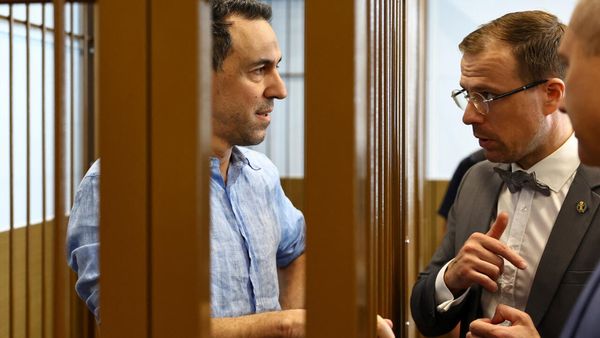Chancellor of the Exchequer Rachel Reeves is on track to raise taxes and cut spending when she delivers her Autumn Budget, which she is expected to announce later this month.
Ms Reeves has given the clearest signal yet that businesses will face a hike in National Insurance contributions in the Budget later this month. She has also vowed to create a tax system that supports wealth creation, and spoke in front of industry leaders.
As she closed the International Investment Summit in London on Monday (October 14), Ms Reeves told leaders from the world’s biggest businesses that British economic instability had ended and the new Government was bringing investment and jobs back to the UK.
Ms Reeves told reporters at the summit in the City of London that there would be no increase in investment unless the Government could reassure the markets that it offered stability.
Indicating that employer NICs are in her sights, Ms Reeves said: “We were really clear in our manifesto that we weren’t going to increase the key taxes paid by working people: income tax, national insurance and VAT and, on the business side of commitment, that we would cap corporation tax at its current rate of 25 per cent which was the lowest in the G7 and we will stick to the commitments we made in our manifesto.
“But you know that there’s a £22billion black hole over and above anything that we knew about going into the election that we need to fill, and that’s not just for one year, but that persists throughout the forecast period.”
The Labour politician, 45, who became the country’s chief financial minister in July, is preparing for what is set to be a challenging statement as she tries to manage that “black hole” in public spending. She said in July that she would have to make some “difficult decisions,” accusing the former Tory Government of covering up more than £21.9 billion of unfunded commitments.
The Office for National Statistics (ONS) said that public sector net borrowing has soared to £3.1bn, much higher than the year before.
Here’s what she could announce in the Autumn Budget — and what and when it is.

What is the Autumn Budget?
The Autumn Budget, sometimes called the Autumn Statement, is an official speech in which the chancellor updates Parliament on the economy.
The chancellor will also in some cases give updates about taxes and spending cuts.
MPs in the House of Commons can then ask Ms Reeves questions about the announcements. She will then likely hold a press conference.
This is similar to the Spring Budget, a much bigger fiscal statement where the chancellor outlines the country’s financial plans and spending.
When is the Autumn Budget?
Ms Reeves’s Autumn Budget is scheduled for Wednesday, October 30.
This will be the Labour Party’s first such statement after assuming power in July.
What time is the Autumn Budget?
The Autumn Budget is typically delivered directly after the Prime Minister’s Questions (PMQs) — at about 12.30pm.
The speech usually lasts around an hour.
What could be in the Autumn Budget?
Based on what Ms Reeves has said in recent months, she seems to be taking a tough stance on finances as she tries to get the budget under control.
After becoming chancellor in July, Ms Reeves made no secret of the financial mess that she had inherited.
While we’ll have to wait until October to know exactly what’s in store, initial predictions include an increase in capital gains tax, and increase in National Insurance and resistance to changing the controversial two-child benefit tax.
A source has also told the Guardian: “We don’t accept the positive economic inheritance line, given the decade that went before — but regardless, nothing in the recent data can offset the scale of the black hole in the public finances we’re looking at.”
What happens after the Autumn Budget?
This depends on what is announced.
If Ms Reeves makes tax-related announcements, then Parliament may need to pass legislation to enact the changes.
If there aren’t any major changes, nothing more will need to happen after the statement.
Which taxes could go up?
Labour has promised income tax, national insurance and VAT won't change on October 30, though there is a small caveat on NI.
Ms Reeves has previously suggested that those who earn more, and with the "broadest shoulders", would take the biggest hit.
National Insurance
Employer contributions are currently worth up to 13.8 per cent of a worker's salary.
Speculation ramped up following Ms Reeves’ speech to industry leaders.
She said: “The precondition for bringing investment into a country is economic and fiscal stability. So we are going to need to close that gap between what the Government is spending and what you’re bringing in through tax receipts.”
Another option would be taking national insurance from employer pension contributions.
Business taxes
Labour is reportedly consulting on the idea of revamping business rates, which are charged on most non-domestic properties with relief for some including small businesses, retail, hospitality and leisure properties.
A change could be made so they are related to the value of the land instead of the current rateable value, which is an estimate of how much it would cost to rent that property for a year in April 2021.
Ms Reeves has previously confirmed the 25 per cent cap on corporation tax will remain.
Pension lump sums
The government is considering reducing the amount people can take out of their pensions without paying any tax.
At present, the tax-free lump sum most people over the age of 55 can take from their pension pot is 25 per cent, up to a maximum of £268,275.
But government officials have asked a major UK pension provider to look into the impact of cutting that amount to £100,000, it has been reported.
Pensions tax relief
The Fabian Society, a left-wing thinktank, said the government could raise at least £10bn a year by reducing tax relief on the money people pay into their pension pots.
The rules give pensioners tax relief equivalent to whatever your marginal rate is - so basic-rate taxpayers get 20 per cent tax relief, while higher and additional-rate taxpayers are entitled to 40 per cent and 45 per cent respectively.
One idea could be reducing the relief offered to higher earners.
Inheritance Tax
Inheritance tax is currently charged at 40 per cent on the value of an estate above £325,000 when someone dies - though the numbers change when partners and children are recipients.
The tax rate could be increased or the value people have to pay inheritance from could be lowered.
Capital Gains Tax
Capital gains is imposed on the profit from the sale of capital assets, including second homes, shares, business assets and most personal possessions worth £6,000 or more, apart from cars.
At present, people do not have to pay tax on the first £3,000 of profits, or £1,500 for trusts.
The tax-free threshold could be removed and the tax could be imposed on assets that are exempt now.







